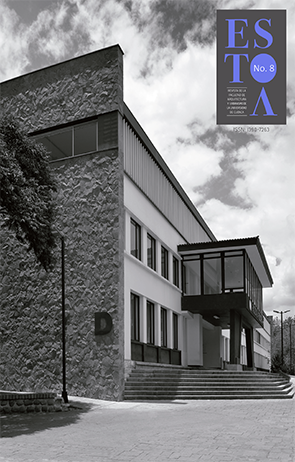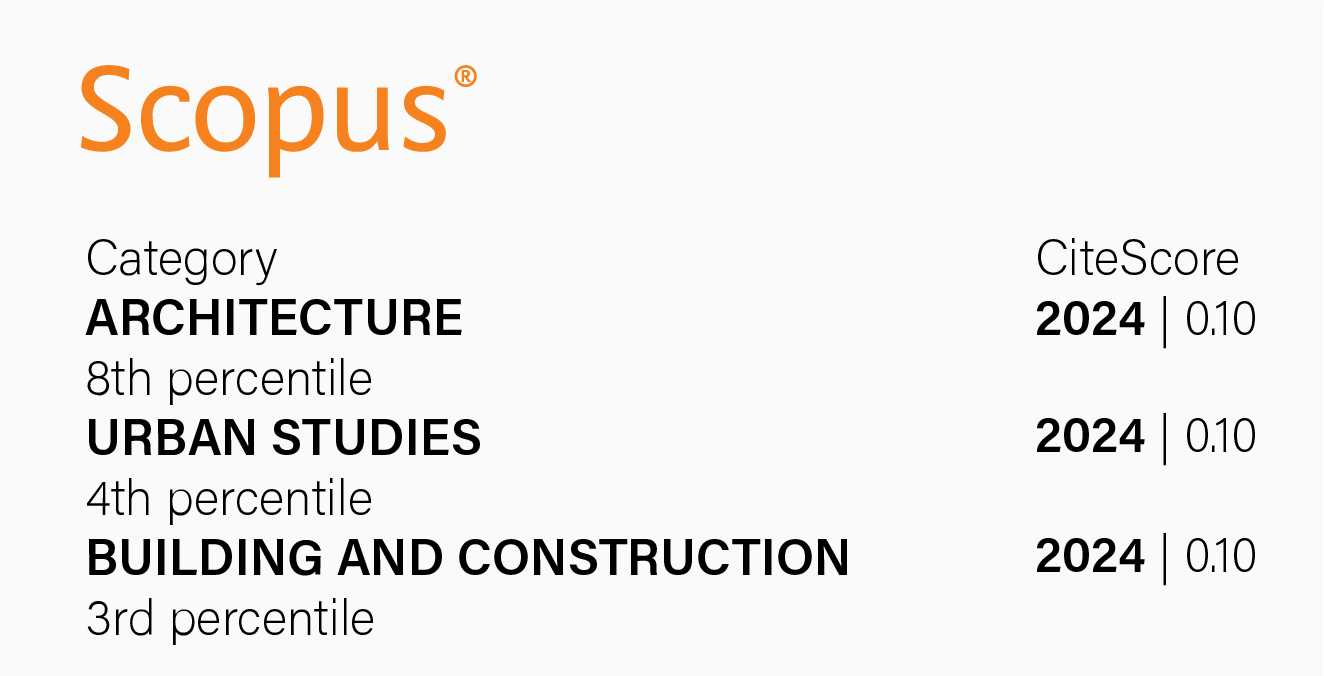Epistemological clues to figure out the right to the city of Henri Lefebvre
DOI:
https://doi.org/10.18537/est.v005.n008.03Abstract
The article presents the need for urban critical theory to shape a small space of hopes, in the midst of a global crisis, urbanizing of neoliberalism and urbanism crisis as such. Consequently, and in attempt to expand the field of urban theory, it shows one of the first steps in the doctoral research of the author, in which, through the epistemological survey on essential fields of Henri Lefebvre’s thought, is intended contributing to a true understanding of the right to the city, proclaimed in 1968 and today become slogan systematically. The analysis arises from the notion of radical human space as original restoration of the young Lefebvre’s thought between 1939-1958 and delves into what author considers the clue in the complete works of Lefebvre, the critique of everyday life.
Keywords: Everyday life, right to the city, urban theory.Downloads
References
BRENNER, N. (2009): What is critical urban theory?. City (Londres), 13:2, 198-207.
BRENNER, N. & MARCUSE P. & MAYER M. (2011) [2009]: La critique urbaine, une discipline fondamentale. Métropolitiques. URL: http://www.metropolitiques.eu/La-critique-urbaineune- discipline.html
BRENNER, N. & SCHMID, C. (2014): The ‘urban age’ in question. International Journal of Urban and Regional Research (Leibnitz), 38:3, 731-755.
BRENNER, N. & SCHMID, C. (2015): Towards a new epistemology of the urban?. City (Londres), 19:2–3, 151– 182. URL: http://dx.doi.org/10.1080/13604813.2015.1014712
GARDINER, M. E. (2000). Henri Lefebvre: philosopher of the ordinary. En Critiques of Everyday Life (71-101). New York: Routledge.
GOONEWARDENA, K. (2011): Henri Lefebvre y la revolución de la vida cotidiana, la ciudad y el Estado. URBAN (Madrid), 1:2, 25-39.
HESS, R. & DEULCEUX, S. (2009). Sur la théorie des moments. Explorer le possible. Chimères, 3:71, 13-26.
JIMÉNEZ PACHECO, P. (2016). Introducción al espacio radical humano. Tres momentos de creación en Henri Lefebvre para anticipar su noción. (Artículo para ponencia). Universidad Politécnica de Cataluña, Barcelona.
MARTÍNEZ LOREA, I. (2013): Henri Lefebvre y los espacios de lo posible. En H. LEFEBVRE, La producción del espacio (9-28). Madrid: Capitán Swing.
MERRIFIELD, A. (2006). Henri Lefebvre. A critical introduction. New York: Routledge.
LEFEBVRE, H. (1975) [1976]: Le Temps des méprises. París: Stock. Ed. español, (1976). Tiempos equívocos. Barcelona: Kairos.
LEFEBVRE, H. (1978) [1968]: El derecho a la ciudad, Barcelona: Edicions 62.
LEFEBVRE, H. (1984) [1968]. La vida cotidiana en el mundo moderno, Madrid: Alianza Editorial S.A.
LEFEBVRE, H. (1991), [1947]: Critique of Everyday Life: Volume I. Londres: Verso.
LEFEBVRE, H. (1999), [1939]: El materialismo dialéctico. Buenos Aires: El Aleph.
LEFEBVRE, H. (2009), [1958]: Théorie des moments. Chapitre VII. En La Somme et le Reste (629-647). París: Economica-Anthropos.
LEFEBVRE, H. (2013), [1974]: La producción del espacio. Madrid: Capitán Swing.
LUKÁCS, G. (1970): Historia y conciencia de clase. La Habana: Editorial de Ciencias Sociales del Instituto del Libro.
SHIELDS, R. (1999): Lefebvre, love and struggle. Spatial dialectics. Londres: Routledge.
STANEK, L. (2011): Henri Lefebvre on Space. Minneapolis: University of Minnesota Press.
STANEK, L. (2011): Teoría, no método-Henri Lefebvre, investigación y diseño urbanos en la actualidad. URBAN (Madrid), 1:2, 59-66.
Published
How to Cite
Issue
Section
License
Copyright (c) 2017 Estoa. Revista de la Facultad de Arquitectura y Urbanismo de la Universidad de Cuenca

This work is licensed under a Creative Commons Attribution-NonCommercial-ShareAlike 4.0 International License.
The Journal declines any responsibility for possible conflicts derived from the authorship of the works that are published in it.
The University of Cuenca in Ecuador conserves the patrimonial rights (copyright) of the published works and will favor the reuse of the same ones, these can be: copy, use, diffuse, transmit and expose publicly.
Unless otherwise indicated, all contents of the electronic edition are distributed under a Creative Commons Attribution-NonCommercial-ShareAlike 4.0 International License.




